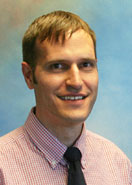Chronic Illness Management
Research overview
What do diabetes, back pain, depression, and heart disease have in common? They're among a host of chronic health problems and disabilities that have traditionally received too little attention from health care systems — until serious complications develop. Modern medicine tends to focus on detecting and treating acute problems, leaving fewer resources for the needs of patients with chronic illnesses, which may be less urgent but are equally important.
Our population is aging rapidly, and people with chronic conditions are living longer. Chronic conditions now affect more than 145 million Americans. About half of Americans over 65 — our nation’s fastest-growing segment — have at least 2 chronic conditions. As our need for improved chronic care grows, health care delivery systems are trying to correct the many deficiencies in current management of chronic diseases.
For over 2 decades, KPWHRI scientists have been developing, implementing, and promoting better models of care for chronic illness. Much of this work is led by the institute's Center for Accelerating Care Transformation (ACT Center), which is widely recognized for its refinement and dissemination of the Chronic Care Model. The ACT Center continues to work with providers nationwide to develop strategies and tools for health care systems seeking to improve chronic illness care.
Such resources are then shared globally through active engagement with international organizations developing guidance and care recommendations. Providers worldwide continue to adapt materials such as the ACT Center’s Patient Assessment of Chronic Illness Care and Patient-Centered Medical Home Assessment surveys.
Recent publications on Chronic Illness Management
Ng MC, Shriner D, Chen BH, Li J, Chen WM, Guo X, Liu J, Bielinski SJ, Yanek LR, Nalls MA, Comeau ME, Rasmussen-Torvik LJ, Jensen RA, Evans DS, Sun YV, An P, Patel SR, Lu Y, Long J, Armstrong LL, Wagenknecht L, Yang L, Snively BM, Palmer ND, Mudgal P, Langefeld CD, Keene KL, Freedman BI, Mychaleckyj JC, Nayak U, Raffel LJ, Goodarzi MO, Chen YD, Taylor HA Jr, Correa A, Sims M, Couper D, Pankow JS, Boerwinkle E, Adeyemo A, Doumatey A, Chen G, Mathias RA, Vaidya D, Singleton AB, Zonderman AB, Igo RP Jr, Sedor JR; FIND Consortium, Kabagambe EK, Siscovick DS, McKnight B, Rice K, Liu Y, Hsueh WC, Zhao W, Bielak LF, Kraja A, Province MA, Bottinger EP, Gottesman O, Cai Q, Zheng W, Blot WJ, Lowe WL, Pacheco JA, Crawford DC; eMERGE Consortium; DIAGRAM Consortium, Grundberg E; MuTHER Consortium, Rich SS, Hayes MG, Shu XO, Loos RJ, Borecki IB, Peyser PA, Cummings SR, Psaty BM, Fornage M, Iyengar SK, Evans MK, Becker DM, Kao WH, Wilson JG, Rotter JI, Sale MM, Liu S, Rotimi CN, Bowden DW; MEta-analysis of type 2 DIabetes in African Americans (MEDIA) Consortium. Meta-analysis of genome-wide association studies in African Americans provides insights into the genetic architecture of type 2 diabetes. PLoS Genet. 2014 7;10(8):e1004517. doi: 10.1371/journal.pgen.1004517. eCollection 2014 Aug. PubMed
Noel PH, Romero RL, Robertson M, Parchman ML. Key activities used by community-based primary care practices to improve the quality of diabetes care in response to practice facilitation. Qual Prim Care. 2014 Aug;22(4):211-9. PubMed
Grembowski D, Ralston JD, Anderson ML. Hemoglobin A1c, comorbid conditions and all-cause mortality in older patients with diabetes: a retrospective 9-year cohort study. Diabetes Res Clin Pract. 2014 Nov;106(2):373-82. doi: 10.1016/j.diabres.2014.07.017. Epub 2014 Jul 29. PubMed
Drewnowski A, Rehm CD, Moudon AV, Arterburn DE. The geography of diabetes by census tract in a large sample of insured adults in King County, Washington, 2005-2006. Prev Chronic Dis. 2014 Jul 24;11:E125. doi: 10.5888/pcd11.140135. PubMed
Jones SM, Amtmann D. Health care worry is associated with worse outcomes in multiple sclerosis: a brief report. Rehabil Psychol. 2014 Aug;59(3):354-9. doi: 10.1037/a0037074. Epub 2014 Jul 14. PubMed
Researchers in Chronic Illness Management
 Beverly B. Green, MD, MPHSenior Investigator |
 James D. Ralston, MD, MPHSenior Investigator |
 Paula Lozano, MD, MPHSenior Investigator; Director, ACT Center |
 Gregory E. Simon, MD, MPHSenior Investigator |
 Katharine A. Bradley, MD, MPHSenior Investigator |
 Dori E. Rosenberg, PhD, MPHSenior Investigator |
 Ben Balderson, PhDSenior Collaborative Scientist |
 Joseph E. Glass, PhD, MSWSenior Investigator |
 Yu-Ru Su, PhDAssociate Biostatistics Investigator |
 Chloe Krakauer, PhDCollaborative Biostatistician |
 Mikael Anne Greenwood-Hickman, MPHSenior Collaborative Scientist |
 Laurel Hansell, MA, MPHCollaborative Scientist |
 Claire Allen, MPHManager, Collaborative Science |
 Morgan Justice, MACollaborative Scientist |
Affiliate Researchers in Chronic Illness Management
Laura-Mae Baldwin, MD, MPH
Professor, Department of Family Medicine
University of Washington
Linda LeResche, ScD
Associate Dean for Research, School of Dentistry
Professor, Oral Medicine
University of Washington










